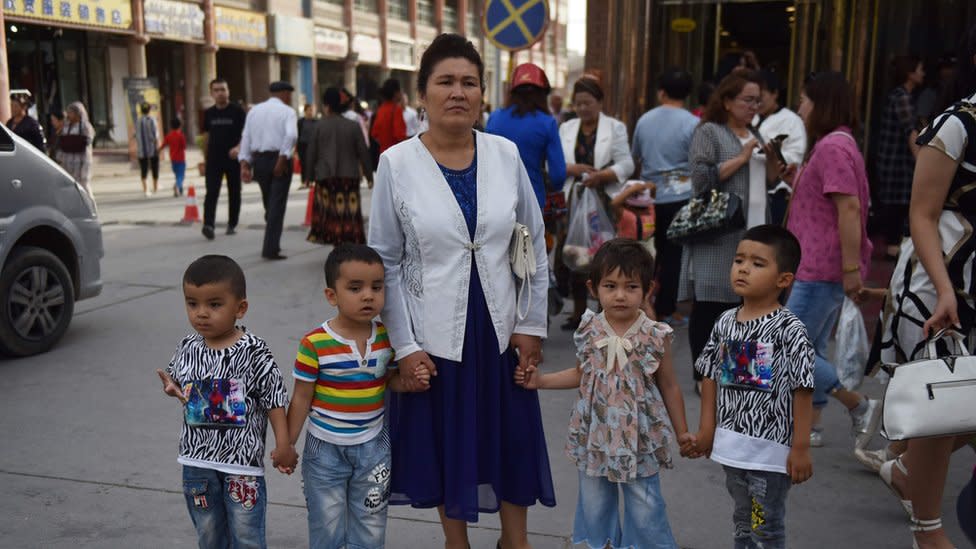
China forcibly separated Uighur families by taking children to state orphanages, according to the human rights group Amnesty International.
In a new report, Amnesty called on China to release all Uighur children kept in orphanages without the consent of their families.
The charity spoke to parents who left children with relatives in China when they were forced to flee the country.
Human rights groups say China has arrested more than a million Uighurs.
The Chinese government has also faced accusations of a wide range of human rights abuses against the Uighur people and other Muslim minorities, including forced labor, forced sterilization, sexual abuse and rape.
The government denies holding Uighurs in detention camps in the Xinjiang region of northwest China. He says the camps are “re-education” facilities used to fight terrorism.
As access to Xinjiang is severely restricted by the Chinese, Amnesty spoke to Uighurs who managed to flee Xinjiang before the crackdown on Uighur people intensified in 2017.
Mihriban Kader and Ablikim Memtinin fled Xinjiang to Italy in 2016 after being chased by the police and pressured to hand over their passports, Amnesty said. They left four children in their grandparents’ temporary care, but the grandmother was taken to a detention camp while the grandfather was questioned by the police, the charity said.
“Our other relatives did not dare to take care of my children after what happened to my parents,” Mihriban told Amnesty. “They were afraid of being sent to the camps as well.”
In November 2019, Mihriban and Ablikim received authorization from the Italian government to bring their children to join them, but the children were apprehended by Chinese police on the way and sent to a state orphanage, Amnesty said.
“Now my children are in the hands of the Chinese government and I am not sure if I will be able to meet them again in my lifetime,” said Mihriban.
Omer and Meryem Faruh, who fled to Turkey in late 2016, left their two youngest children, aged five and six, with their grandparents because they did not yet have their own travel documents, Amnesty said. They later found out that the grandparents were arrested and sent to a camp and have not heard from their children since.
The Amnesty report calls on China to provide full and unrestricted access to Xinjiang for UN human rights experts, independent researchers and journalists, and for all children detained without parental consent to be released to the family.
“China’s relentless mass detention campaign in Xinjiang has put separated families in an impossible situation: children cannot leave, but their parents face persecution and arbitrary detention if they try to return home to care for them,” said Amnesty’s Alkan Akad International Researcher from China.
The Chinese state has created a vast and secret network of camps in Xinjiang and is estimated to have detained more than a million Uighurs and people from other Muslim minority groups.
In recent years there have been reports of terrible human rights abuses, from the forced sterilization of Uighur women to torture and systematic rape within the camps.
China denies the occurrence of human rights abuses and has called ex-camp detainees in exile from liars and actors. China is also accused of intimidating and defaming the witnesses who spoke and of using relatives of the witnesses in Xinjiang as a means of defense against them.
The USA, Canada and the Netherlands have declared that China is committing genocide against the Uighur people. A similar bill was rejected by the UK parliament.
